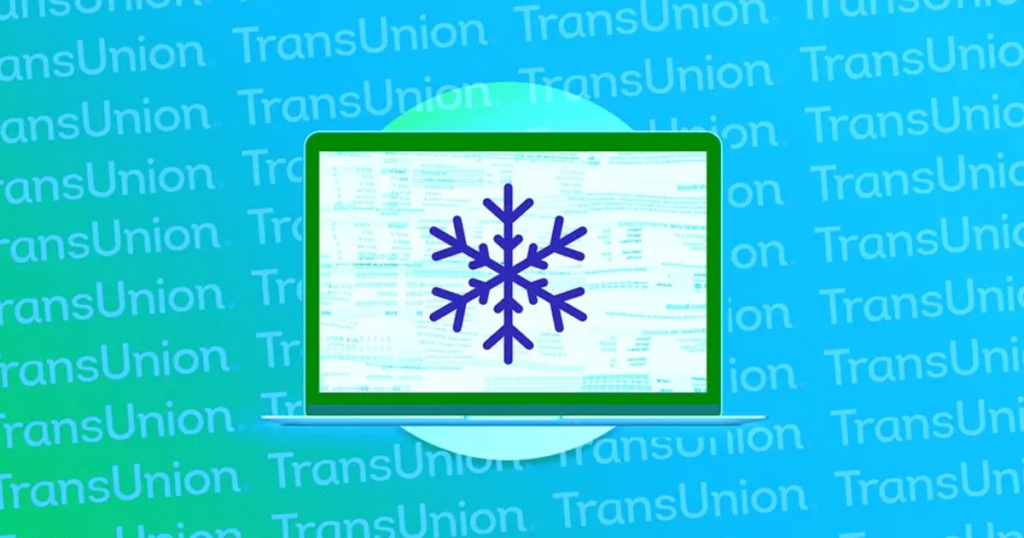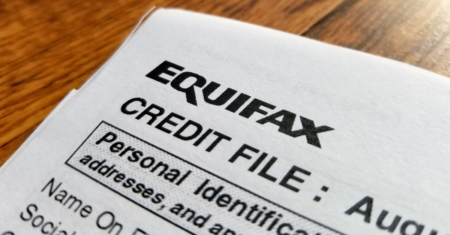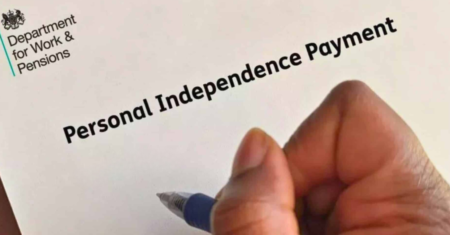
A TransUnion credit freeze is a service that allows you to restrict access to your credit report and prevent identity theft. By freezing your credit, you can stop fraudsters from opening new accounts or applying for loans in your name. A TransUnion credit freeze is free, easy, and does not affect your credit score.
To place a TransUnion credit freeze, you need to create an account on the TransUnion Service Center1 and provide some personal information, such as your name, address, date of birth, and Social Security number. You may also need to answer some security questions or create a PIN or password to verify your identity. The freeze will be effective within one business day if you request it online or by phone, or within three business days if you request it by mail.
Related articles
1- When is open enrollment for health insurance 2024
2- Health Insurance: Everything You Need to Know
3- What and Who Can Apply for Nations Benefits
4- Learn Here How to Apply SSDI Benefits
To lift a TransUnion credit freeze, you need to log in to your account on the TransUnion Service Center1 and provide your PIN or password. You can choose to lift the freeze temporarily or permanently, depending on your needs. You can also specify how long you want the freeze to be lifted or request a one-time access code for a specific third party. The freeze will be lifted within one hour if you request it online or by phone, or within three business days if you request it by mail.
A TransUnion credit freeze has some benefits and drawbacks that you should consider before using it. Here are some of the pros and cons of a TransUnion credit freeze:
Pros:
It can help you prevent identity theft and minimize the damage if your personal information is compromised2.
Identity theft is a serious crime that can affect your finances, your reputation, and your peace of mind. Identity theft occurs when someone uses your personal information, such as your name, Social Security number, or credit card number, to commit fraud or other illegal activities in your name. For example, an identity thief may open new accounts, apply for loans, make purchases, or file taxes in your name without your knowledge or consent. This can damage your credit score, drain your bank account, or cause you legal problems.
One way to protect yourself from identity theft is to freeze your credit report. A credit report is a document that contains information about your credit history, such as your accounts, balances, payments, and inquiries. Credit bureaus, such as TransUnion, collect and share this information with third parties, such as lenders, employers, or landlords, who use it to evaluate your creditworthiness or suitability for certain services or opportunities.
A credit freeze is a service that allows you to restrict access to your credit report and prevent unauthorized inquiries or changes. By freezing your credit, you can stop fraudsters from opening new accounts or applying for loans in your name. This can help you prevent identity theft and minimize the damage if your personal information is compromised.
It is free and easy to request a TransUnion credit freeze online, by phone, or by mail1.
You do not have to pay any money or spend a lot of time or effort to request a TransUnion credit freeze. A TransUnion credit freeze is a service that allows you to restrict access to your credit report and prevent identity theft. By freezing your credit, you can stop fraudsters from opening new accounts or applying for loans in your name.
To request a TransUnion credit freeze, you have three options: online, by phone, or by mail. You can choose the option that is most convenient for you. Here are the steps for each option:
- Online: You need to create an account on the TransUnion Service Center and provide some personal information, such as your name, address, date of birth, and Social Security number. You may also need to answer some security questions or create a PIN or password to verify your identity. The freeze will be effective within one business day if you request it online.
- Phone: You need to call TransUnion at 888-909-8872 and provide some personal information, such as your name, address, date of birth, and Social Security number. You may also need to answer some security questions or create a PIN or password to verify your identity. The freeze will be effective within one business day if you request it by phone.
- Mail: You need to write a letter to TransUnion requesting a credit freeze and include some personal information, such as your name, address, date of birth, and Social Security number. You may also need to provide copies of some documents to prove your identity, such as your driver’s license, passport, or utility bill. You need to send the letter to TransUnion Security Freeze, P.O. Box 2000, Chester, PA 19016. The freeze will be effective within three business days if you request it by mail.
As you can see, requesting a TransUnion credit freeze is free and easy. You do not have to pay any fees or fill out any complicated forms. You just need to contact TransUnion and provide some basic information. However, you should also be aware of the benefits and drawbacks of freezing your credit before using it. For more information about the pros and cons of credit freezing, please refer to item 3 in the text based on credit freezing.
It does not affect your credit score or your existing credit accounts1.
Freezing your credit report does not have any negative impact on your credit score or your existing credit accounts. Your credit score is a number that reflects your creditworthiness, based on your credit history, such as your payment history, credit utilization, length of credit history, types of credit, and new credit inquiries. Your existing credit accounts are the accounts that you already have opened, such as credit cards, loans, or mortgages.
Freezing your credit report does not affect your credit score or your existing credit accounts because it only blocks access to your credit report, not to your credit information. Your credit information is still updated and reported by your creditors to the credit bureaus, such as TransUnion. Therefore, freezing your credit report does not change your credit score or your existing credit accounts. You can still use your existing accounts, make payments, and check your balances as usual.
However, freezing your credit report does prevent you from opening new accounts or applying for loans in your name. This is because potential creditors will not be able to access your credit report and evaluate your creditworthiness unless you lift the freeze. Therefore, freezing your credit report can help you protect your identity and prevent fraud, but it can also limit your access to new credit opportunities. You should weigh the pros and cons of freezing your credit before using it. For more information about the benefits and drawbacks of credit freezing, please refer to item 3 in the text based on credit freezing.
You can lift the TransUnion credit freeze temporarily or permanently whenever you need to apply for new credit or allow access to your credit report1.
A credit freeze is a way to stop the credit bureau from sharing your credit information with any third parties, such as lenders, employers, or landlords. This can prevent fraudsters from opening new accounts or applying for loans in your name.
To lift the credit freeze, you need to contact TransUnion and provide your PIN or password that you received when you placed the freeze. You can do this online, by phone, or by mail, using the same contact information as when you requested the freeze. You also need to specify how long you want the freeze to be lifted or if you want to remove it completely.
For example, if you want to apply for a new credit card or a loan, you can lift the freeze for a few days or weeks until your application is processed. Or, if you want to restore your normal credit activity, you can lift the freeze indefinitely. This way, you can allow access to your credit report and apply for new credit whenever you need to.
However, lifting the credit freeze also means that you are exposing your credit information to potential identity thieves. Therefore, you should only lift the freeze when necessary and for a limited time. You should also monitor your credit report and accounts for any unauthorized inquiries or changes. You can also use a fraud alert instead of a credit freeze. A fraud alert is a free service that requires potential creditors to verify your identity before issuing credit in your name. Unlike a credit freeze, a fraud alert does not block access to your credit report, but it does notify you of any suspicious activity on your account.
Therefore, lifting the TransUnion credit freeze temporarily or permanently is an option that you have whenever you need to apply for new credit or allow access to your credit report. However, you should also consider the risks and benefits of doing so before using it. For more information about TransUnion credit freeze and fraud alert, you can visit their website or call their customer support at 888-909-8872. You can also check their FAQ page for more answers to common questions.
Cons:
It can be inconvenient and time-consuming to lift the TransUnion credit freeze every time you need to use your credit2.
You may face some difficulties and delays when you want to use your credit after you freeze it. A credit freeze is a way to stop the credit bureau from sharing your credit information with any third parties, such as lenders, employers, or landlords. This can prevent fraudsters from opening new accounts or applying for loans in your name.
However, if you want to use your credit for legitimate purposes, such as buying a car or a house, renting an apartment, or getting a new job, you need to lift the freeze first. Lifting the freeze means that you allow access to your credit report and enable new inquiries or changes. To do this, you need to contact TransUnion and provide your PIN or password that you received when you placed the freeze. You also need to specify how long you want the freeze to be lifted or if you want to remove it completely.
This process can be inconvenient and time-consuming for several reasons:
- You need to plan ahead and lift the freeze before you apply for new credit or allow access to your credit report. Otherwise, you may miss out on opportunities or face delays or rejections.
- You need to contact TransUnion separately and provide your PIN or password every time you want to lift the freeze. You cannot lift the freeze for all three major credit bureaus at once.
- You need to wait for TransUnion to process your request and lift the freeze. This can take up to one hour if you request it online or by phone, or up to three business days if you request it by mail.
- You need to remember your PIN or password and keep it safe. If you lose or forget it, you may have trouble lifting the freeze or verifying your identity.
It may not stop all types of fraud, such as existing account fraud, medical identity theft, or tax-related fraud2.
Freezing your credit report is not a foolproof way to prevent all kinds of identity theft. A credit report is a document that contains information about your credit history, such as your accounts, balances, payments, and inquiries. Credit bureaus, such as TransUnion, collect and share this information with third parties, such as lenders, employers, or landlords, who use it to evaluate your creditworthiness or suitability for certain services or opportunities.
A credit freeze is a service that allows you to restrict access to your credit report and prevent unauthorized inquiries or changes. By freezing your credit, you can stop fraudsters from opening new accounts or applying for loans in your name. However, there are other types of fraud that do not require accessing your credit report, such as:
- Existing account fraud: This is when someone uses your existing credit or debit card, bank account, or online account to make unauthorized purchases or transfers. Credit freezing does not affect your existing accounts, so you still need to monitor them regularly and report any suspicious activity.
- Medical identity theft: This is when someone uses your personal information, such as your name, Social Security number, or health insurance number, to get medical services or benefits in your name. Credit freezing does not prevent someone from using your medical information, so you still need to check your medical records and bills for any errors or charges that you did not authorize.
- Tax-related fraud: This is when someone uses your personal information, such as your name, Social Security number, or income details, to file a fraudulent tax return in your name and claim a refund. Credit freezing does not stop someone from filing a tax return in your name, so you still need to file your taxes early and protect your tax documents.
It does not protect you from other risks, such as phishing, malware, or data breaches2.
your credit report is not a complete solution to protect your online security and privacy. A credit report is a document that contains information about your credit history, such as your accounts, balances, payments, and inquiries. Credit bureaus, such as TransUnion, collect and share this information with third parties, such as lenders, employers, or landlords, who use it to evaluate your creditworthiness or suitability for certain services or opportunities.
A credit freeze is a service that allows you to restrict access to your credit report and prevent unauthorized inquiries or changes. By freezing your credit, you can stop fraudsters from opening new accounts or applying for loans in your name. However, there are other risks that can compromise your personal information and identity, such as:
- Phishing: This is when someone tries to trick you into revealing your personal information, such as your passwords, PINs, or account numbers, by sending you an email, a text message, or a phone call that looks like it comes from a legitimate source, such as your bank, your credit card company, or a government agency. Credit freezing does not prevent someone from contacting you and pretending to be someone else, so you still need to be careful and verify the sender before you click on any links or attachments or provide any information.
- Malware: This is when someone installs malicious software on your computer or device without your knowledge or consent, such as viruses, spyware, or ransomware. Malware can damage your system, steal your data, monitor your activity, or lock your files until you pay a ransom. Credit freezing does not stop someone from infecting your computer or device with malware, so you still need to use antivirus software and update it regularly, avoid downloading or opening suspicious files or programs, and back up your important files.
- Data breaches: This is when someone hacks into a database or a network that stores your personal information, such as your name, email address, phone number, Social Security number, or credit card number. Data breaches can expose your information to hackers who can use it for identity theft or other fraudulent purposes. Credit freezing does not prevent someone from hacking into a system that holds your information, so you still need to monitor your accounts and statements for any unauthorized charges or changes, change your passwords frequently and use strong ones , and use encryption and secure connections when you transmit sensitive data.
You need to contact each of the three major credit bureaus separately to place or lift a freeze on your credit report1.
A credit report is a document that contains information about your credit history, such as your accounts, balances, payments, and inquiries. Credit bureaus, such as TransUnion, Equifax, and Experian, collect and share this information with third parties, such as lenders, employers, or landlords, who use it to evaluate your creditworthiness or suitability for certain services or opportunities.
A credit freeze is a service that allows you to restrict access to your credit report and prevent unauthorized inquiries or changes. By freezing your credit, you can stop fraudsters from opening new accounts or applying for loans in your name. However, if you want to use your credit for legitimate purposes, such as buying a car or a house, renting an apartment, or getting a new job, you need to lift the freeze first. Lifting the freeze means that you allow access to your credit report and enable new inquiries or changes.
To place or lift a credit freeze, you need to contact each of the three major credit bureaus separately and provide some personal information, such as your name, address, date of birth, and Social Security number. You may also need to answer some security questions or provide a PIN or password to verify your identity. The credit bureau must place or lift the freeze within one business day if you request it online or by phone, or within three business days if you request it by mail.
The reason why you need to contact each of the three major credit bureaus separately is because they do not share information with each other. Each credit bureau has its own database and system for collecting and reporting your credit information. Therefore, if you place or lift a freeze on one of your credit reports, it does not affect the other two. You have to contact each of them individually and follow their instructions.
This process can be inconvenient and time-consuming for several reasons:
- You need to plan ahead and place or lift the freeze before you apply for new credit or allow access to your credit report. Otherwise, you may miss out on opportunities or face delays or rejections.
- You need to contact each of the three major credit bureaus separately and provide your personal information and PIN or password every time you want to place or lift the freeze. You cannot place or lift the freeze for all three major credit bureaus at once.
- You need to wait for each of the three major credit bureaus to process your request and place or lift the freeze. This can take up to one hour if you request it online or by phone, or up to three business days if you request it by mail.
- You need to remember your personal information and PIN or password for each of the three major credit bureaus and keep them safe. If you lose or forget them, you may have trouble placing or lifting the freeze or verifying your identity.
Therefore, placing or lifting a freeze on your credit report requires contacting each of the three major credit bureaus separately. This can be inconvenient and time-consuming, but it can also help you protect your identity and prevent fraud. For more information about how to contact each of the three major credit bureaus and request a credit freeze or fraud alert, you can visit their websites or call their customer support numbers . You can also check their FAQ pages for more answers to common questions.
A TransUnion credit freeze is one of the options that you have to protect your credit report and identity from theft. You can also use a fraud alert instead of a credit freeze. A fraud alert is a free service that requires potential creditors to verify your identity before issuing credit in your name. Unlike a credit freeze, a fraud alert does not block access to your credit report, but it does notify you of any suspicious activity on your account. You only need to contact one of the three credit bureaus to place a fraud alert, and it will automatically notify the other two. A fraud alert lasts for one year, but you can renew it as many times as you want.
How do I get a TransUnion credit freeze?
To get a TransUnion credit freeze, you can visit the TransUnion website or call 1-888-909-8872. You can also request a freeze by mail by sending a letter to:
TransUnion P.O. Box 1000 Chester, PA 19022-1000
How do I unfreeze my credit report?
To unfreeze your credit report, you can visit the TransUnion website or call 1-888-909-8872. You can also request a thaw by mail by sending a letter to:
TransUnion P.O. Box 1000 Chester, PA 19022-1000
Are there any fees associated with a TransUnion credit freeze?
No, there are no fees associated with a TransUnion credit freeze. You can place and remove a credit freeze as many times as you need, for free.
Is a TransUnion credit freeze a good idea for everyone?
A TransUnion credit freeze can be a good idea for anyone who is concerned about fraud or identity theft. However, it is important to note that a credit freeze can make it more difficult to apply for new credit. If you are planning on applying for a new credit card or loan in the near future, you may want to unfreeze your credit report before you do so.
About the Author






0 Comments